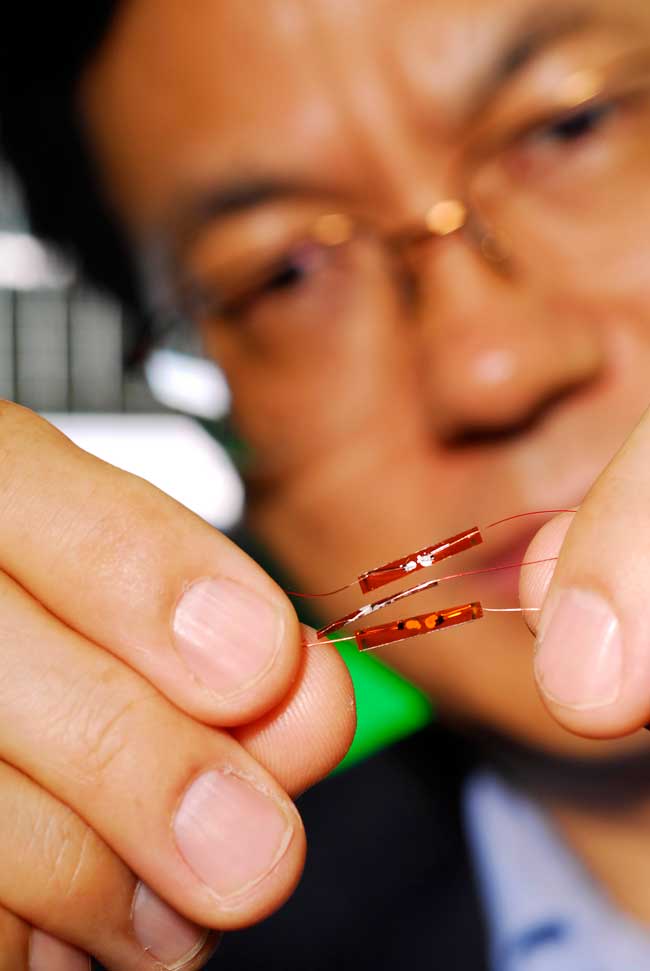
Name: Zhong Lin (Z.L.) Wang Age: 48 Institution: Georgia Institute of Technology Field of Study: Nanogenerators, nano-piezotronics and biomimicking nanotechnology.
What inspired you to choose this field of study? I choose this field to utilize the mechanical energy available in our environment and body to generate electricity, so that we can build self-powered nanosystems. By replicating and learning from biological species, we can build materials and structures that have superior performance.
What is the best piece of advice you ever received? The best advice I have received is to be persistent and consistent towards your goals. By taking your work as an enjoyment and always being positive, a dedicated and fully focused working attitude will make you success.
What was your first scientific experiment as a child? My first scientific experiment was to make cartoon pictures on glass plates and build a slide projector using a flashlight when I was 8.
What is your favorite thing about being a scientist or researcher? The most exciting part of my life is to inventing and discovering unknowns. The most important thing I enjoy is academic freedom and pioneering research.
What is the most important characteristic a scientist must demonstrate in order to be an effective scientist? An effective scientist must work effectively and stay focused while dealing with many in-coming events. Be creative and do innovative and original research. If you have 10 minutes, try to do 10 minutes of work!
What are the societal benefits of your research? The potential social benefit of my work is to solve the power need for small sensors and devices by harvesting energy from the environment. My work will bring a new class of electronics that is triggered by force or pressure.
Get the world’s most fascinating discoveries delivered straight to your inbox.
What about your field or being a scientist do you think would surprise people the most? Implantable medical devices and sensors may not need batteries in the future. Instead, they could be driven by the electrical energy converted from body movement, muscle stretching, heartbeat and blood flow.
If you could only rescue one thing from your burning office or lab, what would it be? It is my laptop.
What music do you play most often in your lab or car? Classical light music that makes me feel relaxed.


